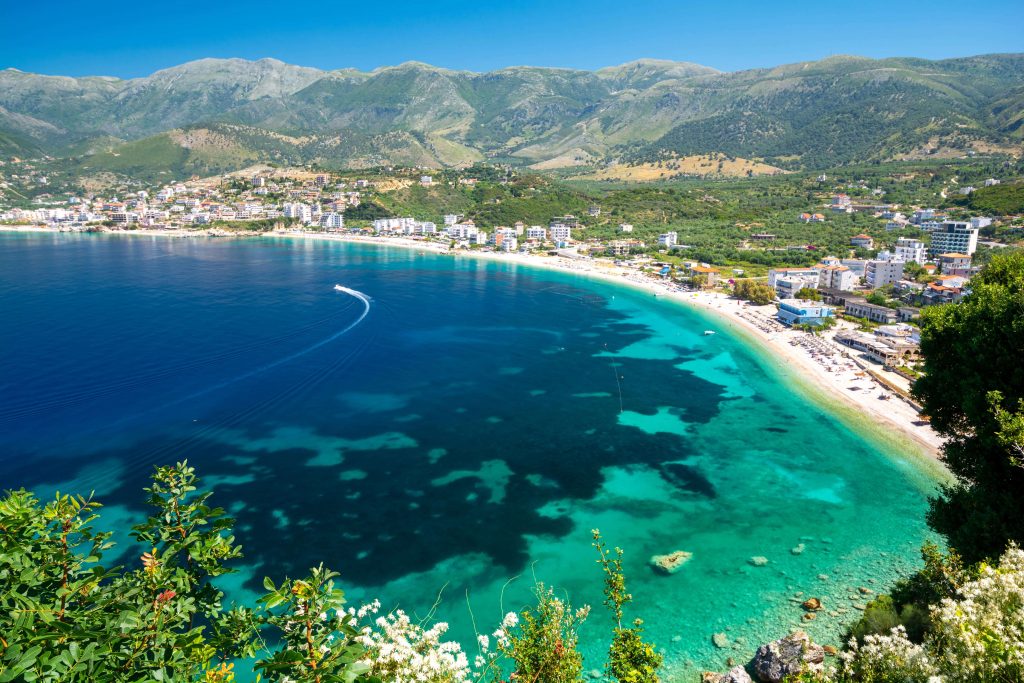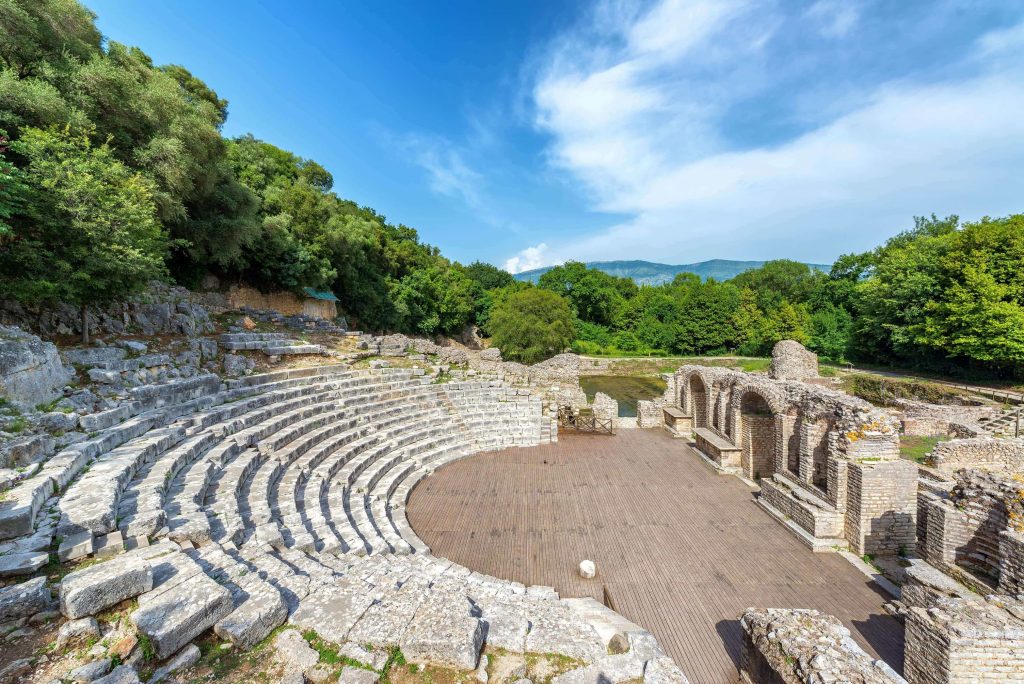Could Albania be the next popular beach, tourism and holiday spot?
Why do fewer holidaymakers choose Albania?
Albania has a turbulent history, having been controlled by other people for centuries, including the Romans, the Byzantines and the Ottomans. It was not until 1912 that the Albanians gained independence from Turkey. However independence was short-lived and Albania was taken over several times by different nations during the first world war and subsequent years. As a result of its complex history, Albania is still playing catch-up in terms of tourism.
Some visitors may be put off by the relative poverty of the country. Albania is one of the poorest countries in Europe, with GDP per capita of just US $4,146, far lower than nearby Bulgaria with US $7,350, Croatia with US$12,090 and Greece which has a GDP of US $39,899 per capita. The flip side of this is that everything is very affordable for visitors from the UK, even with the fall in the value of the pound.
English is not as widely spoken as in many Balkan states, due to the underdeveloped nature of the tourist industry, particularly for UK visitors. While some people may find this one of the charms of visiting another country, others may find it inconvenient when trying to communicate. However, if you know some words of Greek you may find it easier to communicate in the south of Albania, where Greek is taught in schools and spoken by many people.
One of the reasons why Albania is less popular than other Balkan destinations is that flights are more expensive and fewer routes are available from the UK. This may be partly due to the fact that there is only one international airport in Albania. However, there may be changes afoot here with the recent lifting of the airport monopoly, and the anticipated expansion of Kukës Shaikh Zayed Airport in the north and the possible development of a new airport in Saranda in the south. The cost of flights from the UK to Albania is coming down gradually, but this is a slow process without the pressure of sufficient competition.
Some hotels in Albania were put up in haste during the 1990s, with little thought given to the aesthetics of the architecture. Fortunately, in recent years, planning regulations have been tightened up and there is now far greater control over the quality of the buildings put up, both in terms of structural integrity and in appearance.
What does Albania have to offer holidaymakers?
Albania’s Mediterranean climate means hot, dry summers, while winters are cooler and wet. There is snow in mountainous regions, which can see snowfall from November through to March.

With nearly 300 miles of coastline, including the islands of Savan, Zvernec, Ksamil and Tongo, Albania beaches are one of the country’s greatest assets. However, this is an aspect which Albania is just in the early stages of developing. While other countries such as Greece and Croatia have taken full advantage of the beauty of their Adriatic coastline, Albania has yet to make the most of this precious natural resource. One of the advantages of this is that the coastal areas are largely unspoilt. There is an emphasis on encouraging the construction of high-end tourist accommodation, including hotels and villas, with some spectacular buildings popping up along the coast. Most visitors head to the picturesque areas around Durresi, Albania’s second largest city, with their traditional Mediterranean backdrop of olive, citrus and fig trees, and fine sandy beaches.
In the winter there are opportunities to ski at a handful of small resorts, such as Bigëll in Dardhë, and Pukë. These resorts have ski lifts and offer an excellent low-budget alternative to the more expensive resorts of western European countries.
Although Albania is not yet a member of the EU, no visa is currently required to travel there from the UK. Direct flights from the UK to Albania take just three hours, and several airlines operate a service between London and Tirana International Airport, including BA, Alitalia and Lufthansa.
There is a wealth of cultural and archaeological heritage in Albania, with sites and ruins dating as far back as the country’s Illyrian roots. For example, at Apollonia, you can see the remains of the ancient Greek city.

Albania boasts some magnificent scenery, not just along its unspoilt coast, but also in the mountains. There is plenty to do in Albania, with popular activities including hiking, horse riding, kayaking, sailing, paragliding and diving.
There is a range of accommodation types on offer, from premium hotels to campsites, so there’s something to suit all tastes and budgets.
Albania travel warnings
If you are considering an Albania vacation, it’s worth familiarising yourself with some of the issues which you may encounter in the country.
Public transport can be unreliable, with schedules frequently subject to change.
Driving is a relatively new option for the average citizen. Prior to 1991, there were just a few hundred cars on the roads in Albania and the right to drive was restricted to party officials only. Road conditions in Albania are generally far poorer than we are used to in western European countries.
Provided you exercise due caution, you are unlikely to encounter difficulties in Albania, and no more so than you would in any other country in the region. Whether you choose Albania or another destination for your next holiday, it’s important to be protected with travel insurance for your peace of mind. At Fish Insurance, we can take care of all your insurance needs. Even if you require specialist insurance for a pre-existing medical condition or a disability, we’ve got it covered. You can find out more over on our Travel Insurance pages.
The interest in Albania as a tourist destination is certainly growing. In 2011, Lonely Planet named Albania as the number one place to visit, and in 2014 the New York Times listed it at number four of over 50 recommended places. The fledgeling tourist industry will need to be nurtured over many years before it reaches its full potential. In 2017 around 2.5 million holidaymakers chose Albania for their holiday destination, in contrast with neighbouring Greece which has over 30 million tourists per year. Albania is becoming increasingly popular with tourists from countries such as Kosovo and Greece, but its popularity with UK tourists still lags far behind, with just 80,000 Brits holidaying in Albania per year. However, all the ingredients are there for developing a prosperous tourism sector in Albania, and we can expect to see this destination grow considerably in popularity over the next few years.

